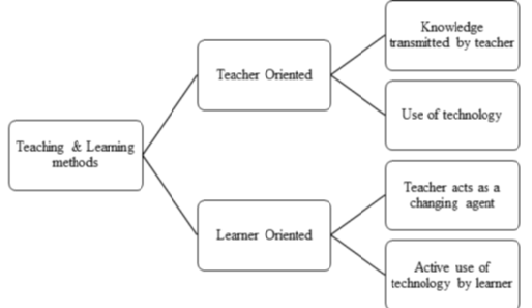


Indian Journal of Science and Technology
DOI: 10.17485/IJST/v13i34.1205
Year: 2020, Volume: 13, Issue: 34, Pages: 3538-3548
Original Article
Jerlin Priya Lovelin Auguskani„1*
1Assistant Professor, Faculty of Nursing, University College, Aldarb, Jazan University,Kingdom of Saudi Arabia
*Corresponding Author
Email: [email protected]
Received Date:28 August 2020, Accepted Date:05 September 2020, Published Date:21 September 2020
Background/Objectives: The novel coronavirus causing COVID 19 has emerged at the end of 2019 as a threat to the health and wellbeing of millions of people within a few weeks of its outbreak. Globally, many institutions replace traditional teaching with online mode. A sudden transition of teaching has its merits and demerits. Keeping this in view, the present study is focused to assess the perception of the faculty Alternative teaching practices (ELearning– Blackboard) concerning COVID 19. Methods: A semi-structured survey questionnaire was used for data collection. The analysis was based on 42 faculties who had been working in selected colleges at Jizan province, Kingdom of Saudi Arabia. Descriptive statistics are used to analyze the data.Findings: The findings of the study related to the faculty perspective were grouped into four categories. In the first category of analyzing perception of faculties towards the E-learning platform, it was found that all the faculties were using university platforms for E-learning. Due to a lack of previous experience nearly half of them experienced technical difficulties. In the second category, the perception of faculties about E-learning course delivery. It was mentioned that the student’s response was found less in the online class. It was further noted that online teaching was least effective for laboratory-based and clinical based courses. The third category emphasized E-learning difficulties experienced by faculties. The fourth category was the faculties’ perception of effective teaching mode. Majority of them disagreed to the statement that “Classroom teaching could be completely replaced by online teaching mode”.Novelty: While E-learning is on its pace in the field of education in the present generation. It may be a supplement for regular classroom teaching rather than a complete replacement, particularly practical oriented subjects.
Keywords: COVID 19; E-Learning; traditional teaching; alternative teaching practices
© 2020 Auguskani.This is an open-access article distributed under the terms of the Creative Commons Attribution License, which permits unrestricted use, distribution, and reproduction in any medium, provided the original author and source are credited. Published By Indian Society for Education and Environment (iSee).
Subscribe now for latest articles and news.